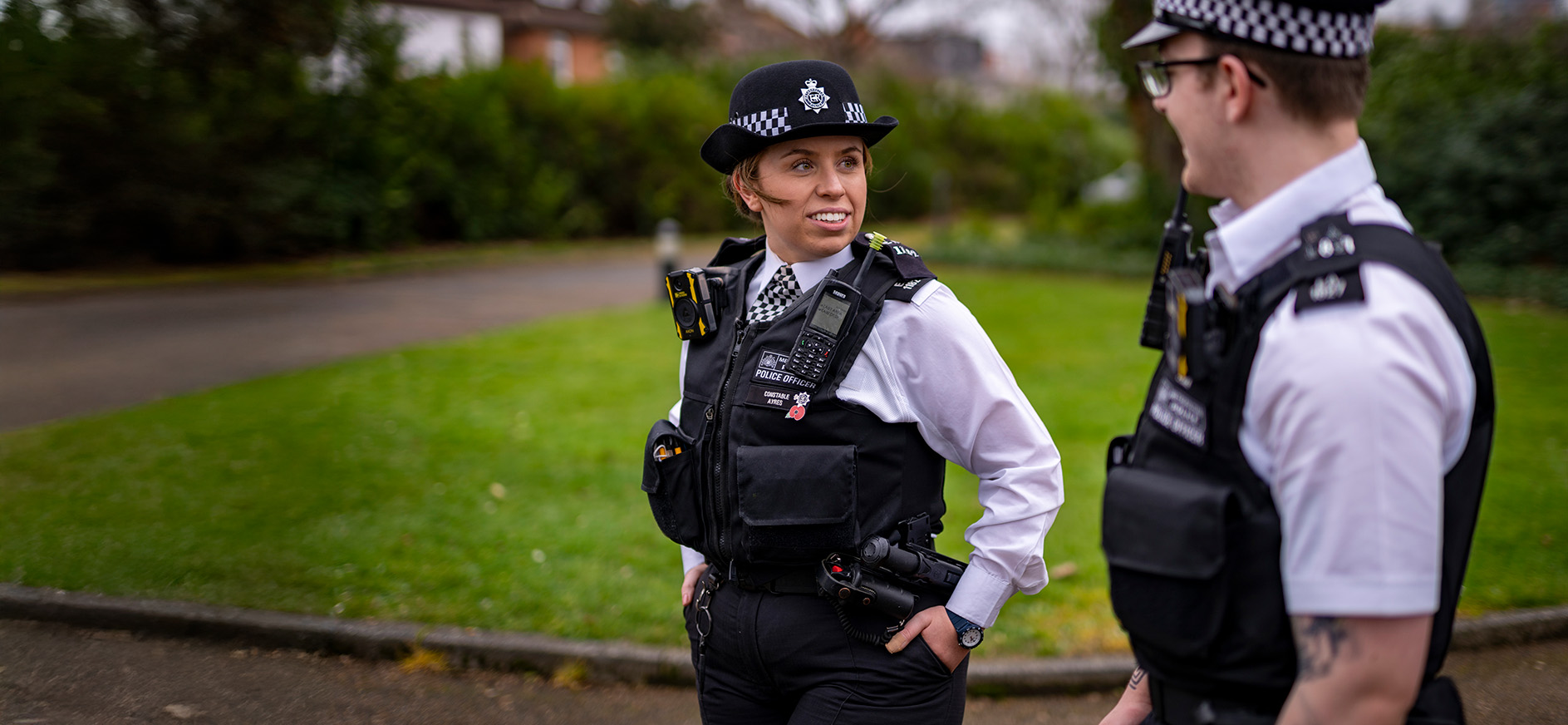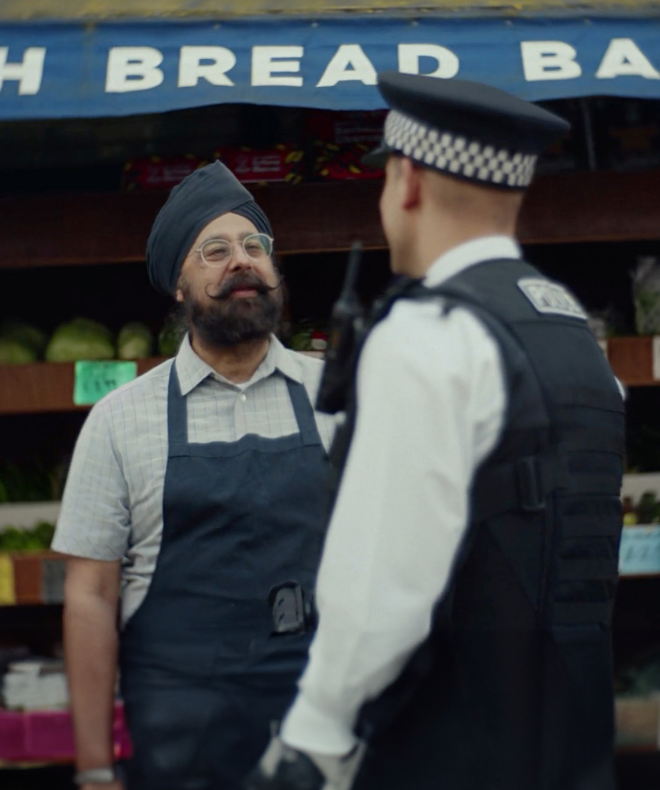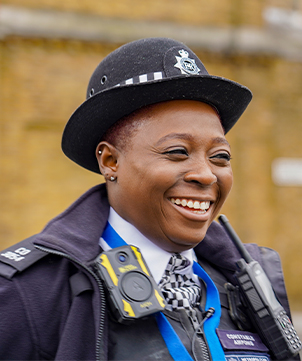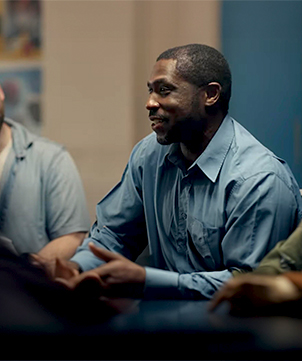
CHANGE
CAN REBUILD
TRUST
CHANGE NEEDS YOU
What is Vetting?
Vetting is how we assess your suitability to work for the Met.
We want to make sure we have the right people to help deliver the high standards that Londoners deserve.
We’re building a police service that embodies our key values of respect, empathy, courage, accountability and integrity.
We want to make sure that everyone working for the Met reflects these too.
So we do a series of background checks to any areas of vulnerability and possible risks of corruption, criminality, or behaviours that could damage trust and confidence.
This process is relatively straightforward.
-
What’s involved?
Part of your application process includes a vetting form. If you are applying to become an officer then you will be sent your vetting form after your ‘day two’ assessment has been successfully completed. For all other roles, we will only send you the form once you have successfully completed all your assessments and interviews.
For the form, you will need to provide your personal information, details of close family, your social media accounts as well as any convictions and encounters with the police. For some roles, we will need details of your finances.
The vetting unit will then review the form, details will be checked against:
- criminal, intelligence and national security records
- public records
- credit agencies
If there are any outstanding queries the vetting unit will reach out to you directly. All checks are carried out in line with national guidelines and codes of practice.
-
What happens to the information?
The Met’s Vetting Unit is committed to providing the highest level of service, ensuring professionalism and discretion at all times. Our Vetting Charter outlines the standards and behaviours you can expect from us.
-
Failing to share or hiding information
Many people fail vetting because they withhold information, about themselves or others. This is never a good idea. Knowingly hiding information, or providing false or misleading information can make you look unreliable and dishonest. This could result in your application being refused – even if facts come to light at a later date.
-
What will you check?
Criminal convictions and cautions
If you have any criminal convictions or cautions, it’s possible you can still pass vetting. Each case is considered on an individual basis in relation to the role being undertaken and the level of vetting required. You should be as open and honest as possible about these to stand the best chance of passing vetting. Failing to disclose facts such as these at the earliest opportunity will lead us to have concerns about your honesty and integrity. That could mean you will fail vetting, when if you had told us everything you may have passed.
-
Accusations
If you’ve ever been accused of anything please share the details with us, even if this did not lead to an arrest or any formal action being taken. This includes circumstances where you have been asked questions by an officer who is investigating an allegation.
-
Other police contact
If you have been spoken to about an incident, it’s likely that the police have recorded that encounter. We want you to tell us about that incident. No matter how far in your past, the outcome or what police officers said at the time.
-
Family members and friends
We ask you to provide details of any of your family members, friends or people you associate with. This is so that we can assess if their past behaviour could lead to concerns about your vulnerability to corruption. We will check if they:
- are known offenders
- have currently or previously engaged in criminal activities
- currently or have previously associated with a person who is involved in criminal activity
- have ever been a member of, had any contact with, or supported any domestic extremism groups
-
Financial checks
We want to know whether you have been, are currently, or are likely to be in financial difficulty. This includes any signs of financial irresponsibility. We want to know this to check whether you could become vulnerable to bribery.
Most people have debt such as mortgages, car loans and credit cards. Commitments in line with your income are fine if you are meeting your payments. We will not be making an assessment based upon the size of the debt you have, but your ability to manage that debt. Debts only become a problem where they are large and individuals fail to take action to resolve the situation or where they are caused by compulsive behaviour, such as gambling.
If we identify differences between your declaration on the vetting form and the information provided by the credit check you will be contacted in an attempt to resolve the matter.
-
How should I prepare?
Most likely you won’t need to do anything before going through the vetting process. However if any of the below apply to you please make sure you have taken the necessary steps:
If you have any County Court Judgements (CCJs), make sure they are paid off or there is a payment plan showing regular monthly payments being sent
If you have Individual Voluntary Arrangement (IVA) documents, make sure that these are up-to-date and show you are up to date on any payment plans
You must declare in the vetting form all police contact, arrest history and reprimands, warnings, cautions and convictions (this list is not exhaustive). If you fail to declare any police contact it’s likely that you won’t pass vetting.
-
Help and tips
These checks can take time but there are some things you can do to help speed things up:
- Ensure all information you are providing is accurate and detailed
- Always be open and honest with your information to enable the vetting unit to process your application as efficiently as possible.
- Check your application thoroughly before submitting, including for spelling errors
- Ensure you have all the required documentation to support your application
- Provide prompt and full responses to our questions. If in doubt about the relevance of any information, tell us, and let us decide
- Check your junk or spam folder in case a message from us has gone there





